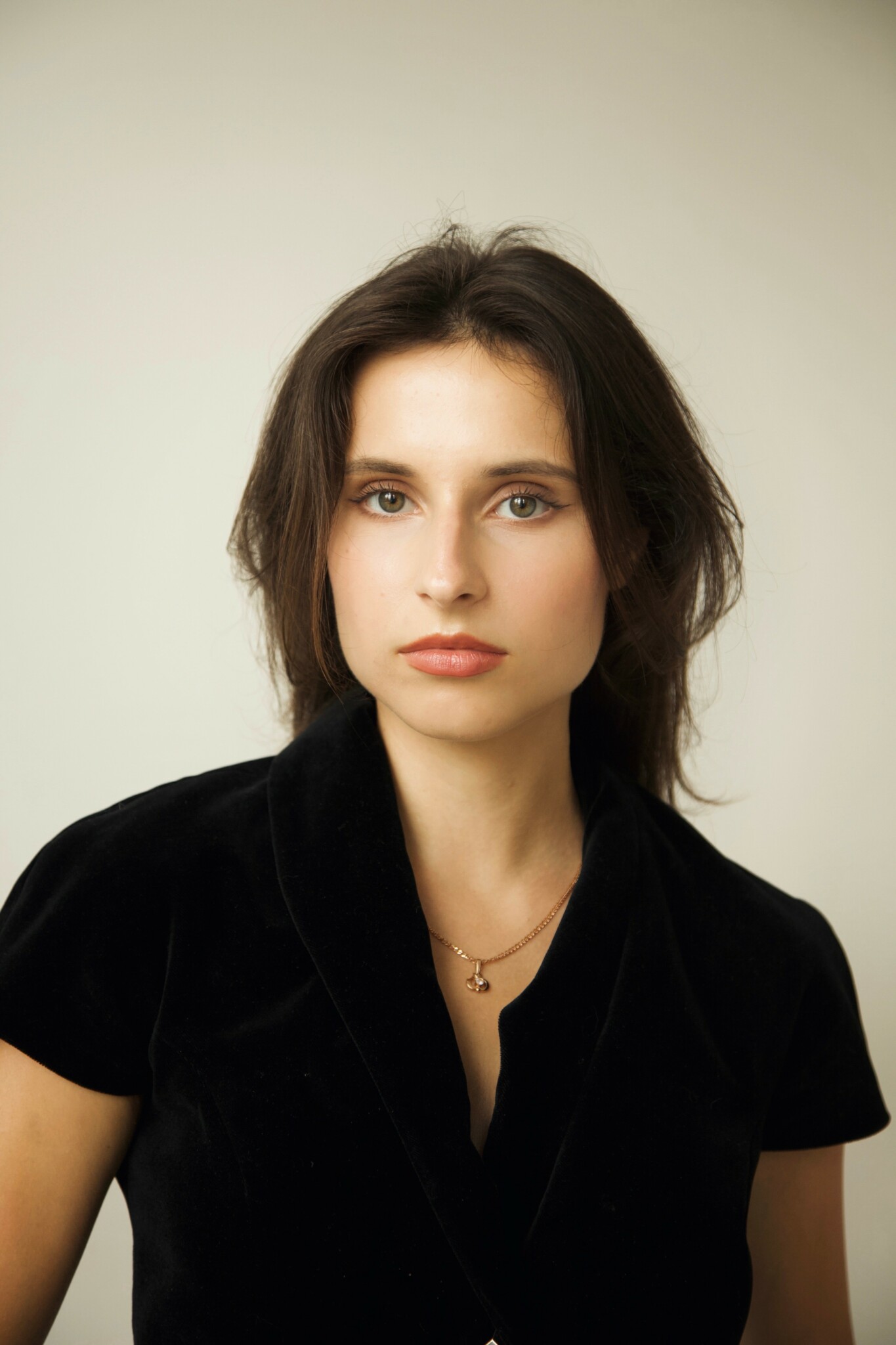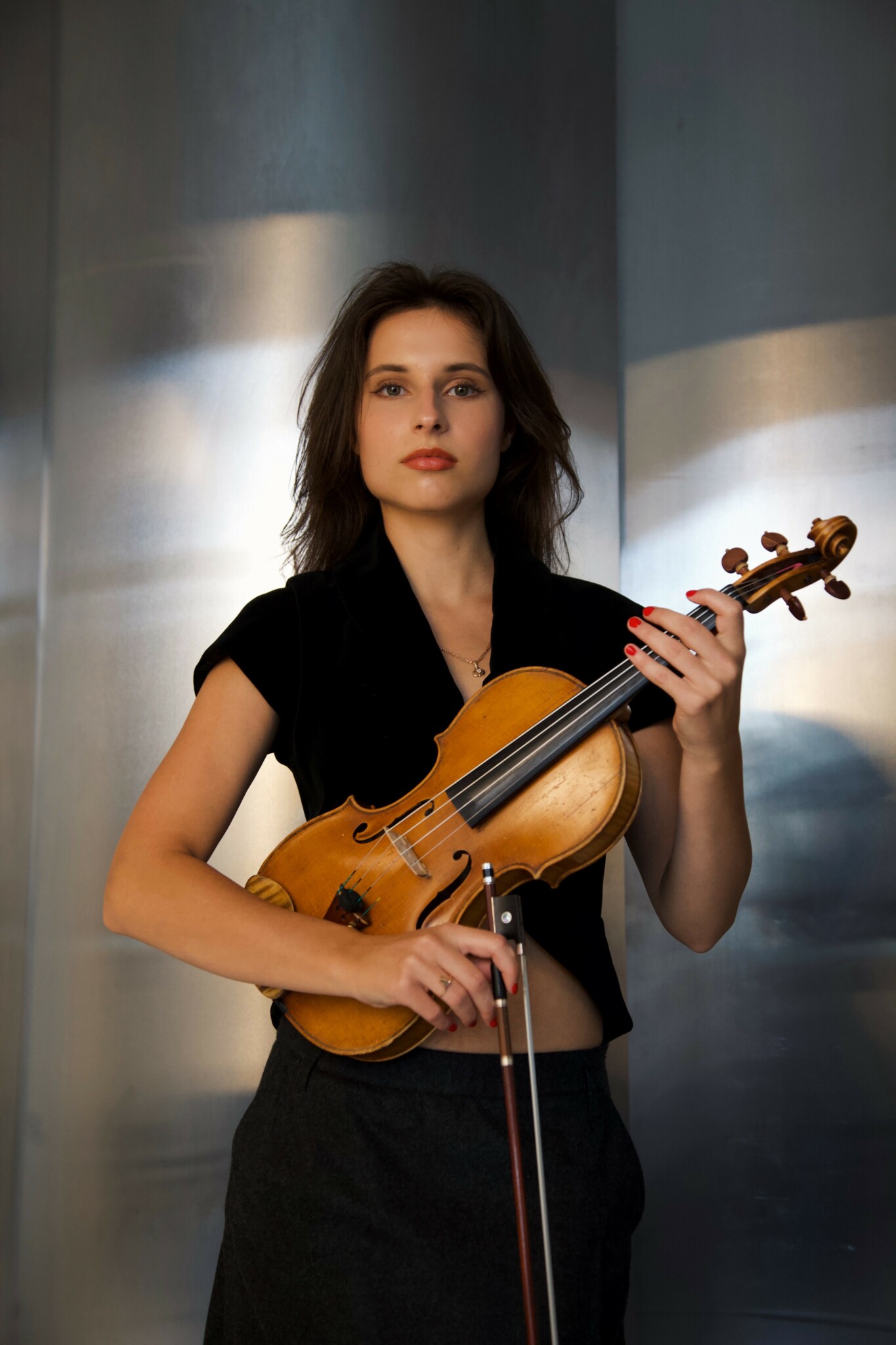We’re excited to introduce you to the always interesting and insightful Tetiana Zhmendak. We hope you’ll enjoy our conversation with Tetiana below.
Alright, Tetiana thanks for taking the time to share your stories and insights with us today. Learning the craft is often a unique journey from every creative – we’d love to hear about your journey and if knowing what you know now, you would have done anything differently to speed up the learning process.
When it comes to playing the violin, finding the right teacher is crucial. Pedagogues are our guides into this world, and it is very important to learn from someone who will teach you the nuances of the instrument and help you develop your sound and musicality. The violin is a very sensitive and complex instrument. I have been fortunate to have amazing teachers in my life who have helped me understand it.
My journey actually began with another instrument. I started on the flute but switched to the violin after a year or so because I wanted to be more like my older brother, who played the violin at the time. Dedicating most of your time to learning the violin isn’t always easy; therefore, patience and creativity are the most important character traits of a classical musician. The first is self-explanatory, but when I say “creativity,” I mean incorporating imagination and curiosity into daily practice to make it more engaging.
I believe that constantly searching for the right sound and staying curious about the meaning of the music one performs helps in moving forward, even on difficult days.
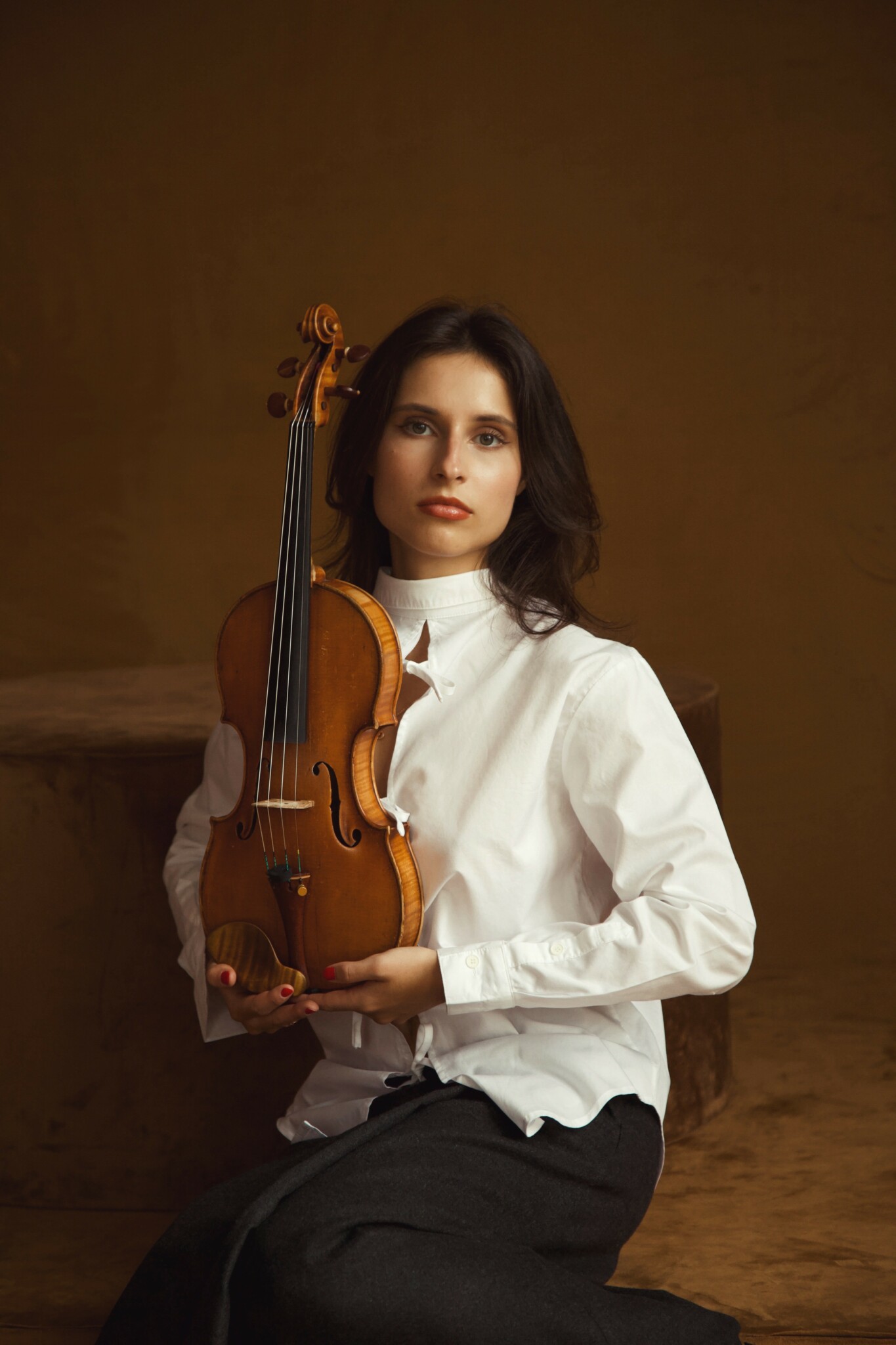
As always, we appreciate you sharing your insights and we’ve got a few more questions for you, but before we get to all of that can you take a minute to introduce yourself and give our readers some of your back background and context?
I got into music thanks to my parents, who, surprisingly, don’t play any musical instruments. Despite not being musicians themselves, they raised my brothers and me with a deep love for classical music and the arts. Going to the opera, ballet, or a concert at the philharmonic was a frequent occurrence in my family, just as learning two instruments was nonnegotiable for each child. All three of us played the violin and piano, but unlike my brothers, I decided to make music my career.
I grew up in Kyiv, Ukraine—the most beautiful city, rich in culture and home to many great theaters. From an early age, music allowed me to travel a lot and opened doors to exciting opportunities. One of them was playing in the Youth International Philharmonic Orchestra in New York City at the age of 13. A few years later, I returned to the U.S. to attend the Berklee College Summer Program in Boston. I absolutely fell in love with the city and was drawn to the idea of moving there to study.
In my previous response, I mentioned the importance of having good teachers in a musician’s life. I have been incredibly grateful for the opportunity to study with Alexander Velinzon during my years in Boston. It has been an eventful journey, full of challenges but also amazing opportunities, such as performing with the Boston Youth Philharmonic Orchestra and the DuBois Orchestra.
Another side of my musical identity is being a composer. I started writing my own music at around the age of 12 and even had some of my early works performed in Ukraine. However, I wasn’t always consistent with composing until I began my master’s degree in 2022. In February of that year, Russia launched a full-scale invasion of Ukraine—a devastating and terrifying war that has brought immense pain to all Ukrainian families, including mine. I felt a strong need to channel my anger and heartbreak into music, using composition as a documentary expression of what it feels like to be a Ukrainian woman during such times. Since the start of the invasion, I have made it my mission to speak out against aggression and injustice.
The most recent piece I wrote about the war premiered in November 2024 at Pickman Hall. It is called 24 3:40, a reference to the exact date and time Russian bombs entered Ukrainian airspace. This piece was part of my largest compositional project to date—a concert of my works titled When My Soul Screams, When My Heart Sings. I always introduce myself as a Ukrainian composer and violinist, making my intention to represent my country clear. In my works, I blend motifs from national folk melodies with neoclassical and impressionistic techniques, alongside my own unique perspective on music.
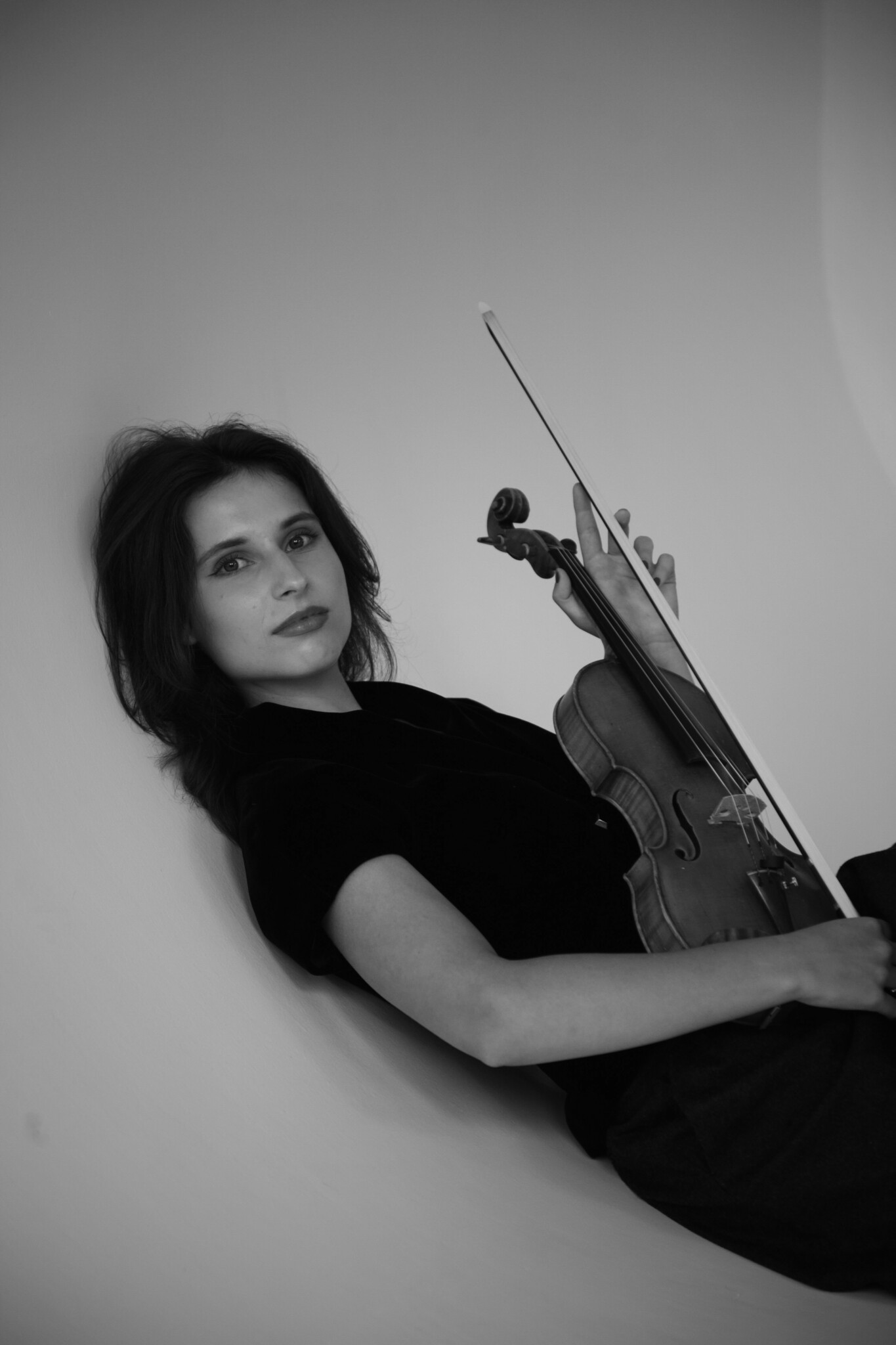
We often hear about learning lessons – but just as important is unlearning lessons. Have you ever had to unlearn a lesson?
It might be a common answer, but one thing I definitely had to unlearn is comparing myself too much to other artists. Of course, it’s inevitable to some extent, but there was a point when comparison started getting in the way of my creativity and motivation to improve. Not to mention, the time and energy spent comparing yourself to people you hardly know could—and should—be used to focus on improving your own work.
I must say, developing this kind of tunnel vision and focusing solely on your own craft is easier said than done. But I keep trying!
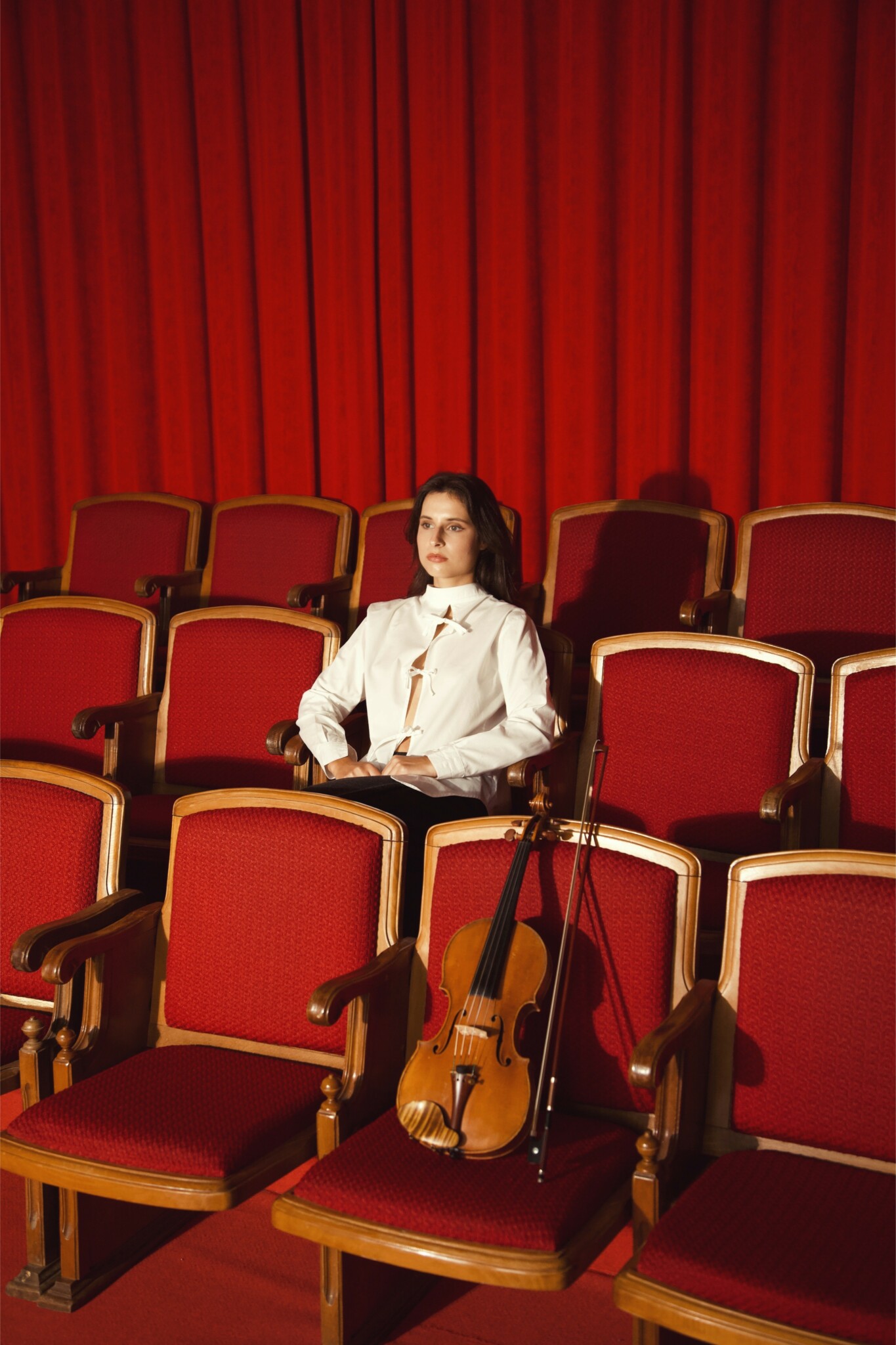
What can society do to ensure an environment that’s helpful to artists and creatives?
It’s an interesting question—one that I think we, as a society, should consistently revisit, as the world is constantly changing and new artists continue to emerge. In some ways, certain countries are already doing a better job of supporting the arts. In Germany, for example, attending a classical music concert is much more accessible, especially for audiences under 25. This allows for broader exposure to classical music from a young age, even for those who are not interested in playing music themselves.
In my home country, it is also more common and accessible for families to spend time in museums, theaters, or concert halls. In my opinion, making art more accessible in general and allowing audiences to engage with it freely helps build a society where art is an essential aspect of life rather than a secondary one. I don’t believe you need to reach a certain age, level of maturity, or sophistication to listen to classical music—you simply need open access to the concert hall.
Contact Info:
- Linkedin: https://www.linkedin.com/in/tetiana-zhmendak-842b97274?utm_source=share&utm_campaign=share_via&utm_content=profile&utm_medium=ios_app
- Youtube: https://youtube.com/@tanyamakesmusic?si=kVCiPfbm6xD7Aet2
